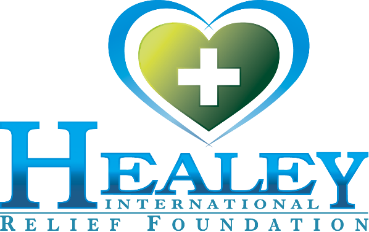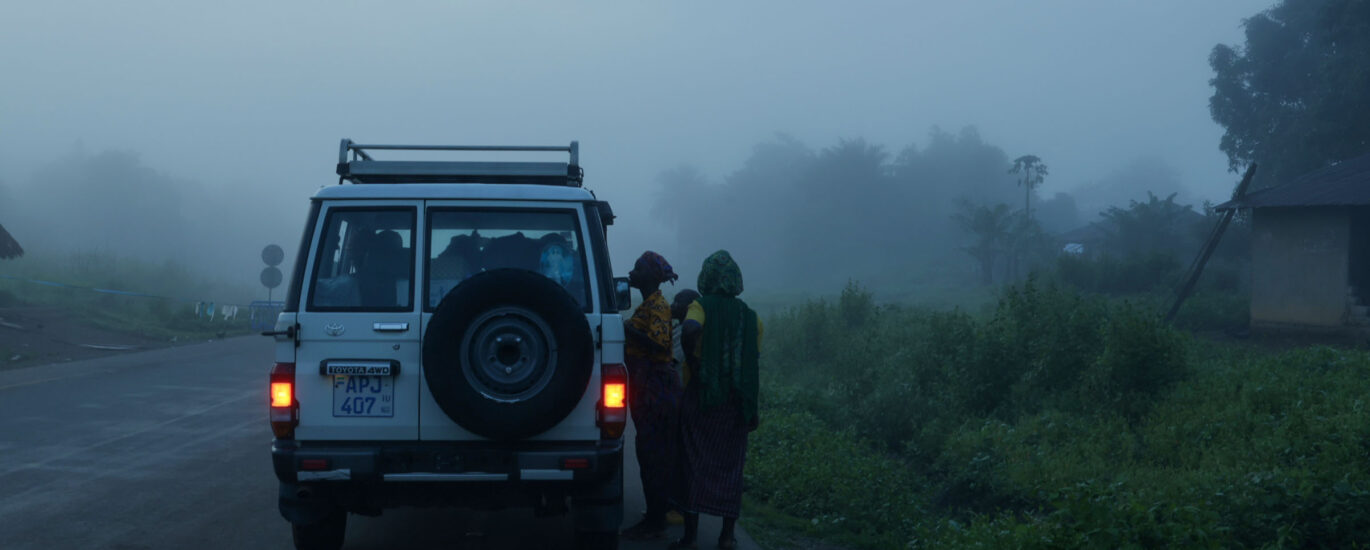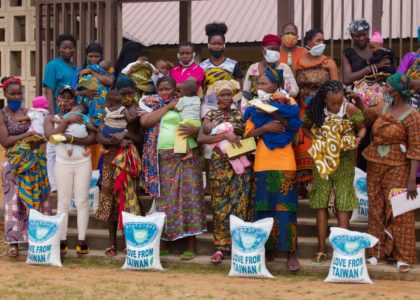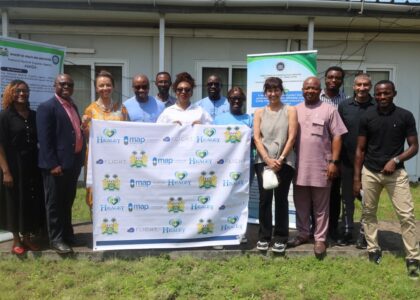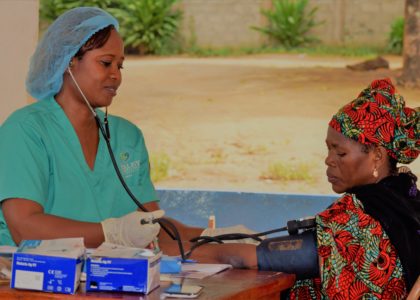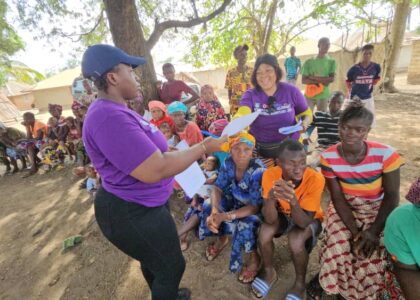By Healey International Relief Foundation, ROW Foundation, and Epilepsy Association of Sierra Leone
The sun is just rising as the team from Loreto Health Services loads patient records and carefully packs boxes of medicines into their vehicle. Ahead of them lies another long day of travel across rough roads to reach remote villages. It’s exhausting work, but it’s work they love—because they know that without these visits, men, women, and children living with epilepsy will be left without the medicines they need to control their seizures.
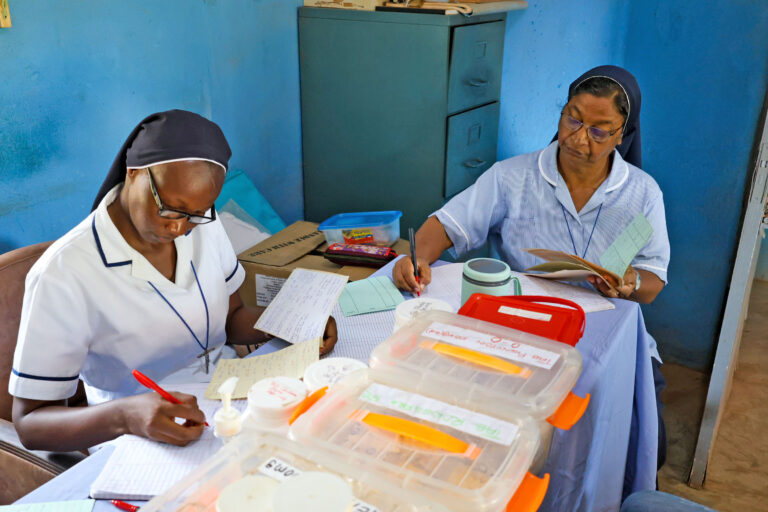
For families, these visits mean far more than just treatment. They mean relief from fear, dignity restored, and the chance for children to attend school, for parents to work, and for communities to thrive.
Aminata, a 35-year-old mother of three from a rural village in Sierra Leone, first came to a Loreto Health Services outreach clinic in Moyamba several years ago after walking two hours from her home.
Before treatment, she suffered monthly seizures, sometimes falling into the cooking fire and sustaining burns. Since receiving care, she has regained her health and independence.
Understanding the Challenge in Sierra Leone
Epilepsy is one of the most misunderstood and stigmatized health conditions in Sierra Leone with an estimated 85,000 individuals suffering from the disease. But, alarmingly, an estimated 80-85% go untreated. Many sufferers are children, and this impacts their attendance at school; others face discrimination and stigmatization from the disease. For those undiagnosed, they and their families wonder what is bringing on the seizures. Behind every number is a life interrupted—yet with proper diagnosis, treatment, and education, epilepsy can be managed.
Thanks to funding from Rotary Foundation through a grant received by the Sunrise Rotary Club of Naperville, IL, USA, a new program is expanding epilepsy outreach and awareness in Sierra Leone. In partnership with the ROW Foundation, Healey International Relief Foundation (HIRF), the Epilepsy Association of Sierra Leone (EASL), and the Rotary Club of Bo, Sierra Leone, the project will ensure consistent access to medication and equip health workers with the skills to recognize and treat epilepsy. Just as importantly, it will open conversations within communities and schools to replace fear and stigma with understanding and compassion.
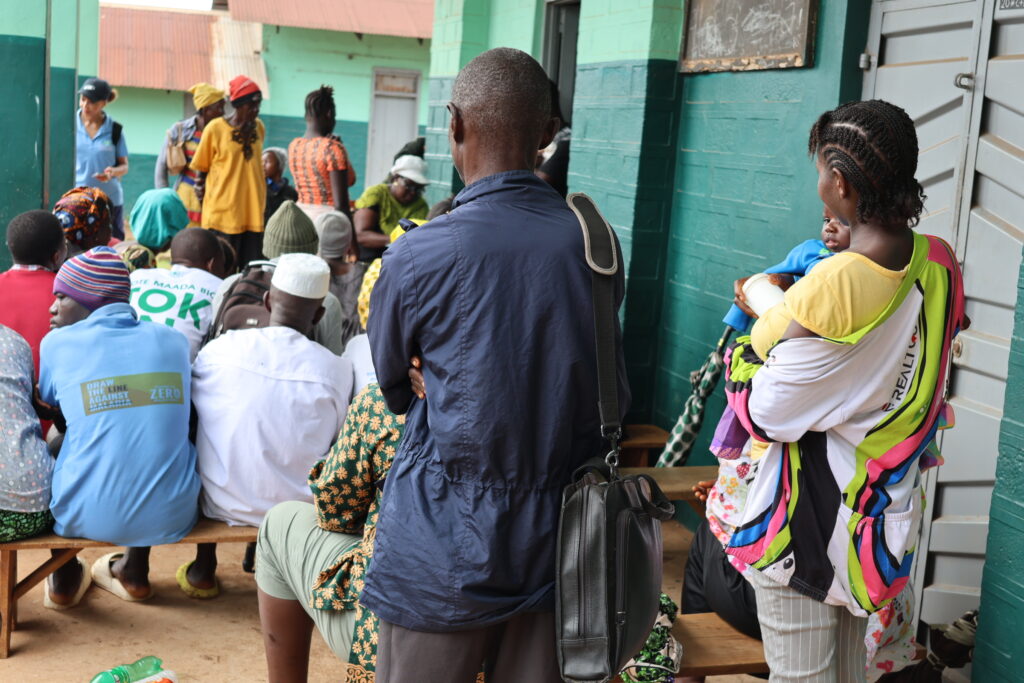
Reducing Stigma in Schools and Communities
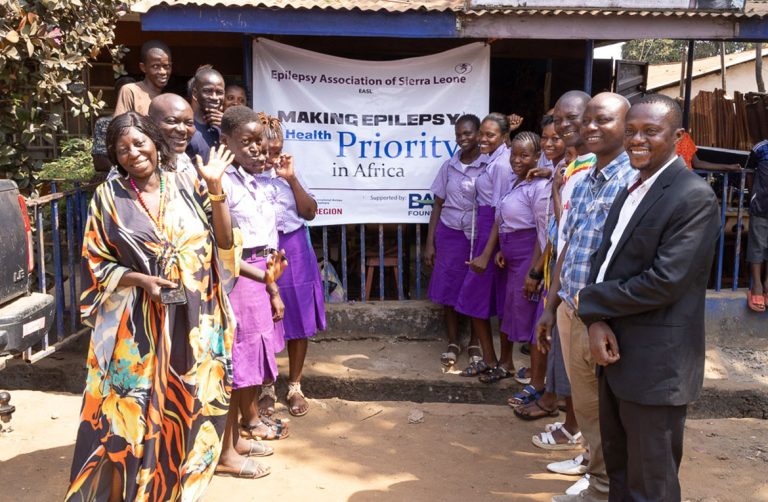
Max Bangura, Executive Director of EASL, has dedicated years to promoting epilepsy awareness in schools across the Western Area. “EASL is proud to be part of this initiative to bring greater understanding to schools and communities in key districts of Sierra Leone,” said Mr. Bangura. “By fostering inclusive environments in both schools and communities, we can create places where children with epilepsy can truly thrive.”
The EASL project focus is on outreach to teachers, schools, and communities to reduce stigma, promote inclusion, and raise awareness about epilepsy. As part of this effort, teachers will receive training on how to respond to seizures in the classroom and provide appropriate support to students. The project will engage ten schools, aiming to reach 5,000 students with life-changing education and awareness.
Strengthening Community-Level Care
Another critical focus of the project is strengthening community-level care through the training of Community Health Workers (CHWs). These frontline workers will play a vital role in identifying the early signs of epilepsy and encouraging individuals to seek timely treatment. HIRF will lead this initiative in close partnership with Loreto Health Services, an organization with years of experience in both treating epilepsy patients in Makeni and raising awareness in rural communities.
Together they will equip 20 CHWs with the knowledge and skills to recognize early symptoms, provide accurate information, and guide individuals and families through every stage of care—from diagnosis and treatment to psychosocial support and community reintegration. By empowering CHWs, in this way, the project strengthens a compassionate support network that reduces stigma, enhances continuity of care, and ensures that no one living with epilepsy is left behind.
“I recently had the privilege of joining Loreto Health Services during their outreach visits,” shared HIRF Executive Director Josephine Garnem. “The impact of their work is truly life-changing for people living with epilepsy. Our goal is that through this project, we help CHWs become trusted navigators who provide comprehensive support—not only for epilepsy care but also for accessing broader social and health services as part of a whole-of-care approach.”
Global Support, Local Impact
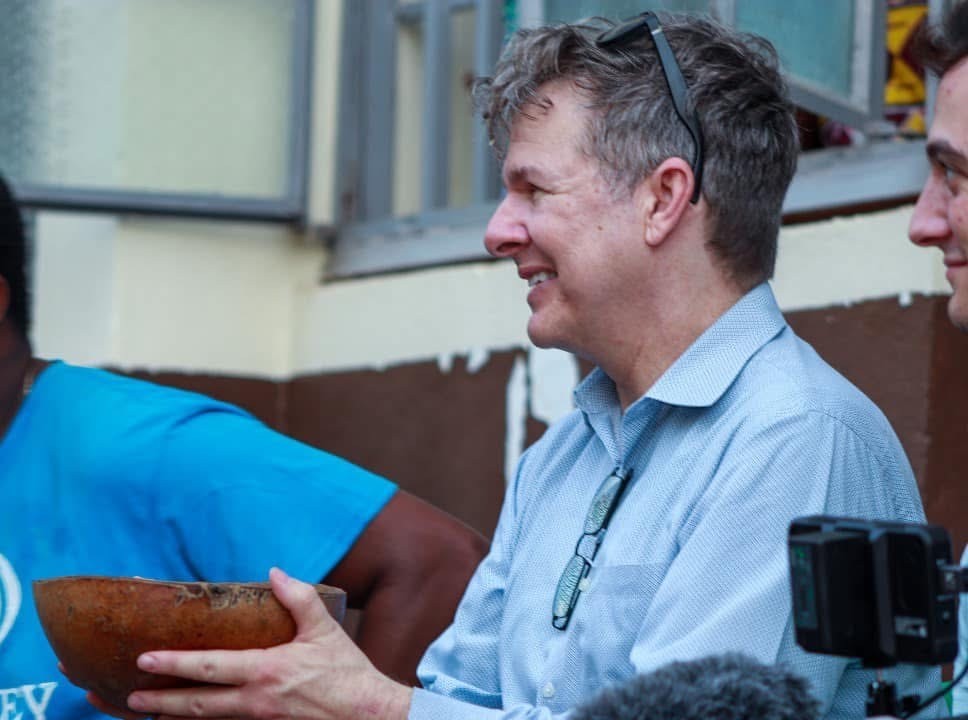
The idea for this project was sparked during a visit to Sierra Leone by ROW Foundation President Ken Koskela. Since 2018, ROW Foundation has supported HIRF by providing essential epilepsy medicines for use at Loreto Health Services and other facilities across the country.
During his trip, Ken witnessed firsthand the impact of these donations. “I was so impressed with the work being done in Sierra Leone,” he reflected. “I knew that, in partnership with EASL and HIRF, we could build a program to advance epilepsy care and expand treatment. Our mission at ROW Foundation is to help transform the lives of people with epilepsy—and this program will do exactly that.”
The project is a one-year effort focusing on key districts throughout Sierra Leone as well as the Western Area’s urban and rural communities. The Rotary Club of Bo is serving as the local sponsor and will work closely with all partner organizations to ensure its success.
